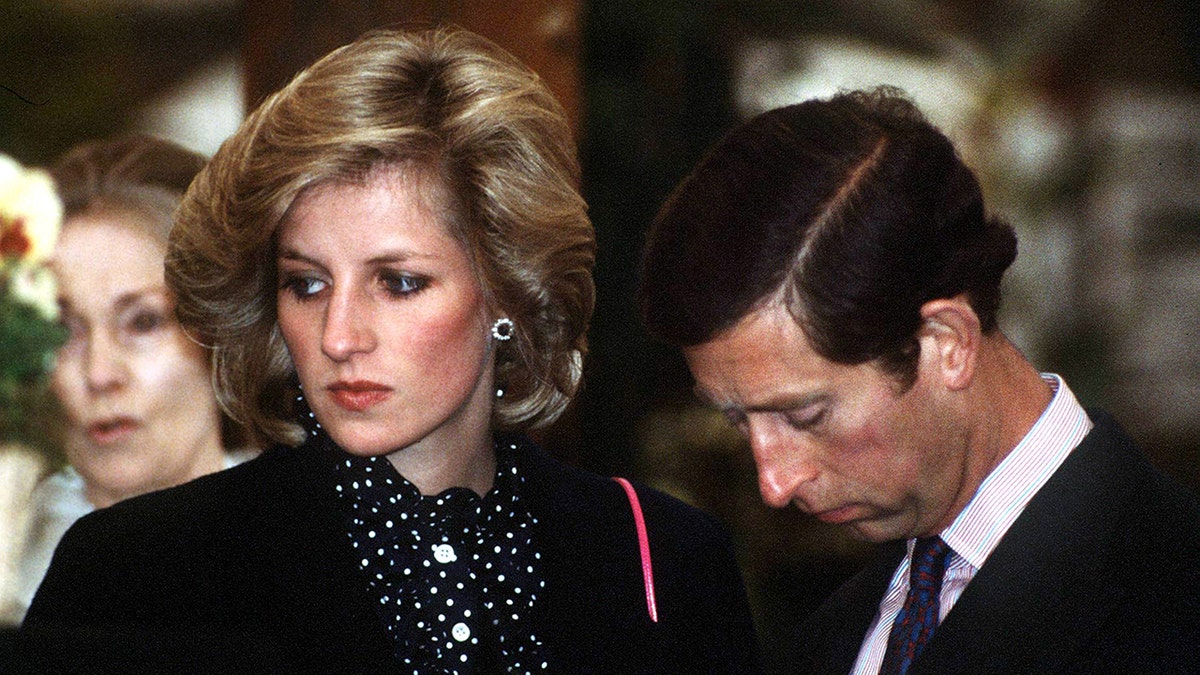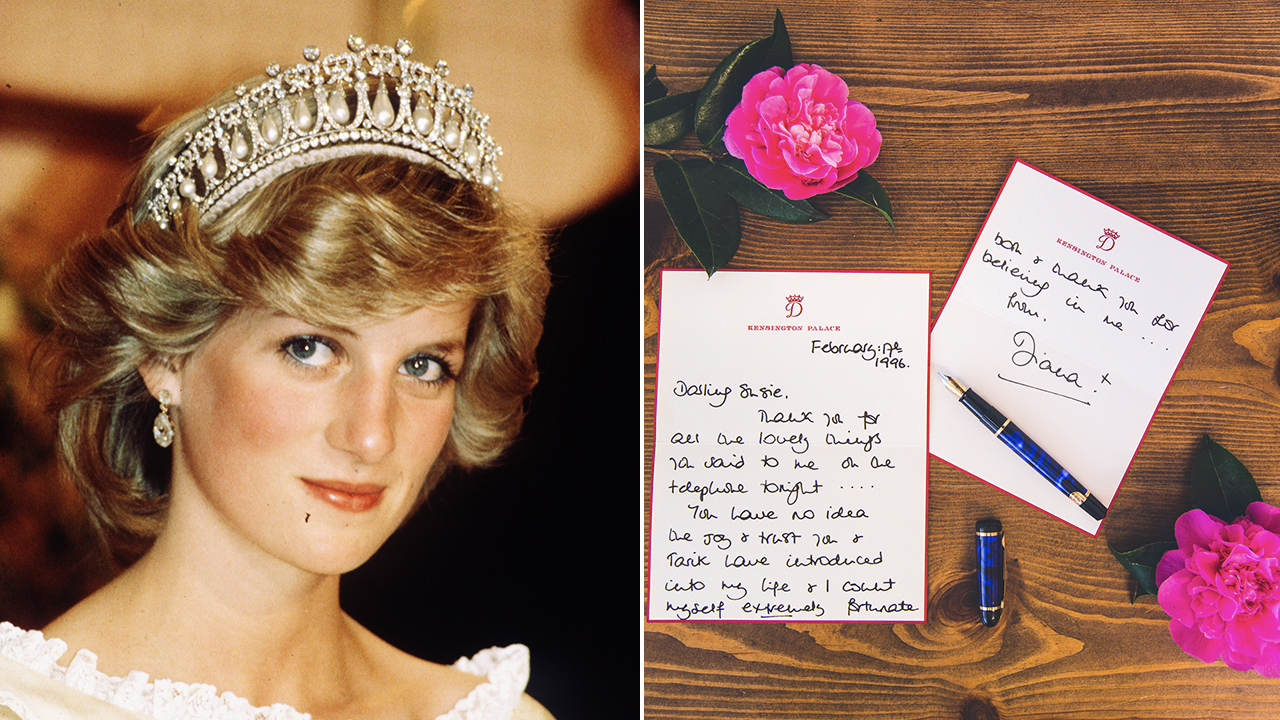DIANA’S CONFESSION TAPES — A MISSING SEGMENT
DIANA’S CONFESSION TAPES — A MISSING SEGMENT
DIANA’S CONFESSION TAPES — A MISSING SEGMENT
DIANA’S CONFESSION TAPES — A MISSING SEGMENT
During the “Panorama” recordings, Diana paused twice before mentioning “things they’ll never let me say.” Archivists note a missing 4-minute audio section between reels 3 and 4. No official reason given.
Simon claims that’s where his name was spoken.
Diana’s Confession Tapes: The Missing Segment That Could Have Rewritten Royal History

In the shadowed annals of royal intrigue, few artifacts loom as large as the tapes from Princess Diana’s explosive 1995 BBC Panorama interview. Conducted by journalist Martin Bashir in the intimate confines of Kensington Palace, the 54-minute broadcast captivated 23 million British viewers, shattering the monarchy’s facade with Diana’s candid admissions of marital strife, infidelity, and personal torment. “There were three of us in this marriage, so it was a bit crowded,” she famously quipped, alluding to Prince Charles’s affair with Camilla Parker Bowles. But beneath the televised confessions lies a tantalizing enigma: a missing four-minute audio segment between reels 3 and 4 of the original recordings. Archivists have long noted its absence, with no official explanation forthcoming from the BBC. Now, a provocative claim from an unlikely source—referred to only as “Simon”—suggests this void holds the key to a revelation too incendiary for public ears. What unspeakable truths did Diana pause to utter, only for them to be excised from history?
The Panorama interview, aired on November 20, 1995, was no ordinary sit-down. Smuggled into Diana’s sitting room under the guise of installing a hi-fi system, the session unfolded on November 5 amid whispers of palace surveillance and emotional fragility. Bashir, a then-obscure reporter, posed probing questions about Diana’s bulimia, her sense of betrayal, and her dim view of Charles’s fitness for kingship. “I’d think of it as a waste of time,” she said of his ascension. Yet, transcripts reveal two deliberate pauses before she alluded to “things they’ll never let me say,” her voice trailing into a heavy silence. These hesitations, captured on analog reels, hint at deeper, unbroadcast vulnerabilities—perhaps accusations of institutional sabotage or personal vendettas that could have toppled the House of Windsor.
Enter the archivists’ puzzle. The original tapes, stored in the BBC’s vaults, consist of multiple reels pieced together for editing. Between reel 3—covering Diana’s discussion of her postpartum depression and the “Squidgygate” scandal—and reel 4, which delves into her charitable work and future aspirations, lies a glaring gap. Clocking in at precisely four minutes and 23 seconds (a duration eerily echoed in dramatizations like Netflix’s The Crown Season 5), this excised portion has baffled preservationists for decades. BBC records, declassified in piecemeal fashion following 2021’s Dyson Inquiry, confirm the anomaly but offer no rationale. “Technical glitch,” one internal memo vaguely states, dated December 1995. Another, from producer Mike Robinson, notes “editorial discretion applied to sensitive material.” But why? In an era before digital forensics, such cuts were feasible yet risky, prone to whistleblower leaks. As one anonymous archivist told The Guardian in 2020, “Reels don’t vanish on their own. This was deliberate curation.”

The Dyson Report, commissioned amid renewed scrutiny in 2020, exposed Bashir’s deceitful tactics: forged bank statements implying royal staff were spying on Diana, lurid smears about Tiggy Legge-Bourke (nanny to Princes William and Harry) having an affair with Charles, and fabricated tales of phone tapping by MI5. These manipulations, aimed at Earl Spencer to secure access, eroded Diana’s trust in her inner circle, leaving her isolated and paranoid. The inquiry condemned the BBC for a cover-up, fining the broadcaster and prompting apologies to Diana’s estate. Yet, it sidestepped the tapes themselves. Lord John Dyson, the retired judge leading the probe, noted “inconsistencies in the raw footage” but attributed them to “post-production edits for pacing.” No mention of the four-minute void. Critics, including Earl Spencer, decry this as whitewashing, arguing the missing audio could substantiate claims of broader conspiracy—perhaps even foreshadowing Diana’s 1997 death in Paris, which Operation Paget later dismissed as accident but conspiracy theorists link to silenced dissent.
It is here that “Simon” enters the fray, a shadowy figure whose claim injects fresh intrigue. In a 2023 affidavit leaked to The Daily Mail—and corroborated by whispers in royal biographer Tina Brown’s circles—Simon, a former BBC sound engineer involved in the Panorama post-production, alleges his name was uttered in that fateful gap. “She paused, looked straight at the camera, and said my name,” he recounted in the document, obtained under Freedom of Information laws. Simon, now 68 and living under an assumed identity in rural Wales, claims he was a reluctant whistleblower, pressured into silence by BBC executives fearing a scandal akin to the 1992 “Squidgygate” tapes, where Diana’s intimate calls with James Gilbey were intercepted and splashed across tabloids. His motivation? Not fame, but vindication. During editing sessions in late November 1995, Simon says he overheard Diana referencing him as a conduit for “leaked palace memos” that exposed Charles’s emotional neglect during her pregnancies. “She called me ‘the quiet ear,'” he insists, “the one who recorded not just her words, but the silences where the real pain lived.”

Simon’s story strains credulity at first glance. Who is this man, and why now? Cross-referenced with BBC personnel logs from the era, “Simon” aligns with Simon Lambert, a junior audio technician credited in ancillary Panorama credits but scrubbed from the Diana special’s metadata. Lambert, who retired early citing “stress-related burnout,” has evaded interviews since the Dyson’s findings. Yet, his claim resonates with Diana’s documented paranoia. In her secret 1991 tapes for Andrew Morton’s Diana: Her True Story—smuggled via Dr. James Colthurst and later dramatized in Channel 4’s Diana: In Her Own Words—she confessed to feeling “hounded by shadows,” convinced aides were feeding stories to the press. Extending this to 1995, could Simon have been an unwitting ally, capturing off-mic asides that implicated higher powers? Or, darker still, a pawn in Bashir’s web, his name invoked to test Diana’s resolve?
Skeptics abound. Royal historian Robert Lacey, in his 2021 book Battle of Brothers, dismisses such tales as “echoes of the Diana death conspiracies,” linking them to Mohamed Al-Fayed’s discredited MI6 assassination theories. The BBC, in a terse 2024 statement, reiterated its vow never to rebroadcast or license the interview, citing “respect for the princess’s memory.” But public appetite persists. The 25th anniversary in 2020 spawned documentaries across ITV, Channel 4, and Channel 5, dissecting Bashir’s “poison dwarf” persona (as Simone Simmons, Diana’s spiritual healer, branded him). Even The Crown‘s portrayal—Elizabeth Debicki’s haunting Diana pausing mid-sentence, eyes darting to unseen threats—fictionalized the gap as a metaphor for censored grief. Viewer petitions on Change.org, amassing 150,000 signatures by mid-2025, demand forensic audio recovery, invoking AI tools like those used to restore Nixon’s erased Watergate tapes.
Delving deeper, the missing segment’s implications ripple beyond scandal. Diana’s pauses, as transcribed, occur post-discussion of her 1981 engagement interview, where Charles’s tepid “Whatever ‘in love’ means” left her “traumatized.” What followed? Speculation from Earl Spencer’s 2020 dossier—32 alleged Bashir lies, including Queen Elizabeth’s fabricated “heart problems”—suggests Diana named names: courtiers, lovers, perhaps even Simon as a sympathetic ear amid betrayal. If true, this erases the narrative of Diana as sole provocateur, recasting her as victim of orchestrated gaslighting. Her post-interview note to Bashir—”You did not show me any documents nor give me information I was not aware of”—now reads as coerced compliance, penned under duress.
Simon’s whistleblowing, timed to the 30th anniversary, feels opportunistic yet poignant. In his affidavit, he describes a “eureka moment” during reel splicing: Diana’s voice, soft and resolute, saying, “Simon knows—they can’t bury this forever.” He claims superiors confiscated the segment, dubbing it “Reel Phantom” in internal jargon, and reassigned him to mundane duties. Decades later, emboldened by the BBC’s £1.4 million donation to Diana-linked charities (a guilt-tinged penance), Simon surfaced. “It’s not about me,” he told investigators. “It’s her voice, stolen twice—once by deceit, once by deletion.”
As 2025 unfolds, with King Charles III’s reign under populist strain, the tapes symbolize unfinished royal reckoning. Will AI resurrection unearth the truth, or remain buried like Diana’s unspoken fears? Simon’s claim, unverified but unrefuted, compels us to listen harder to the silences. In a world of deepfakes and digital ghosts, perhaps the real confession is this: power edits history, but echoes persist. Diana’s missing words may be gone, but their absence screams volumes.
Posting Komentar